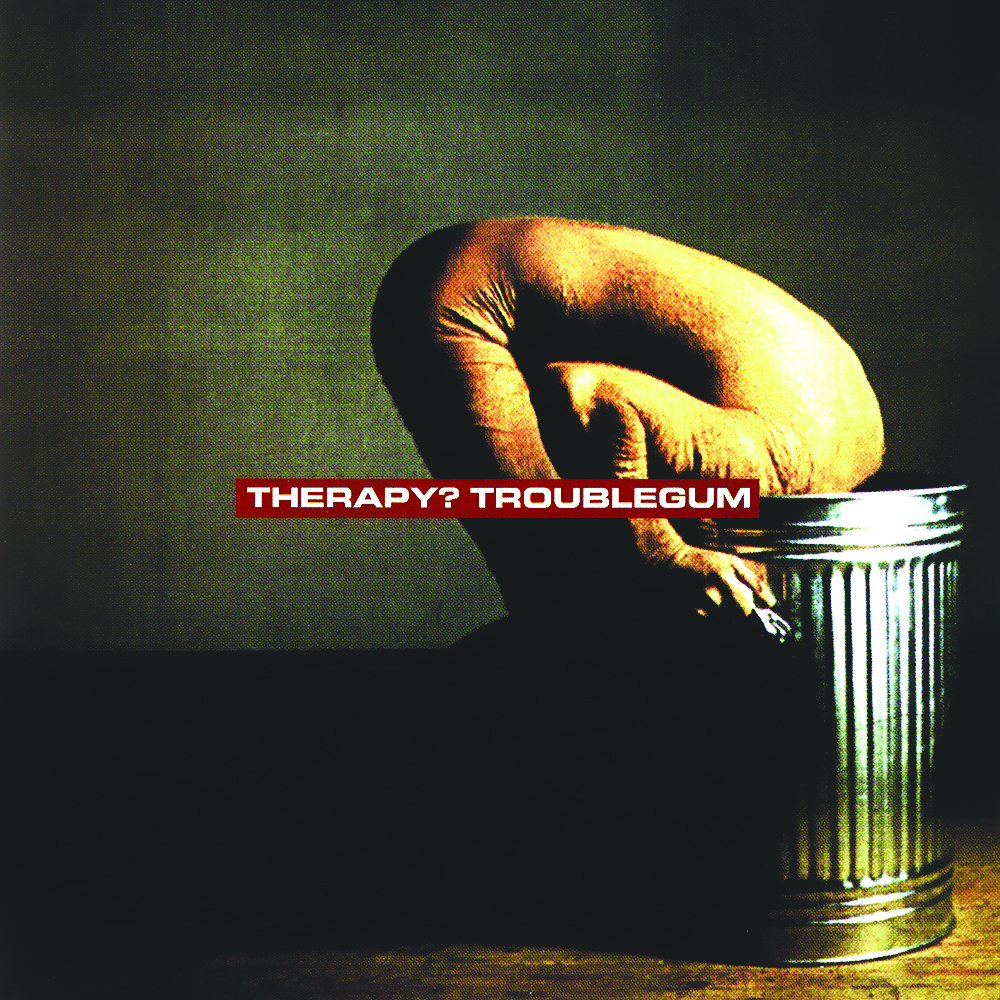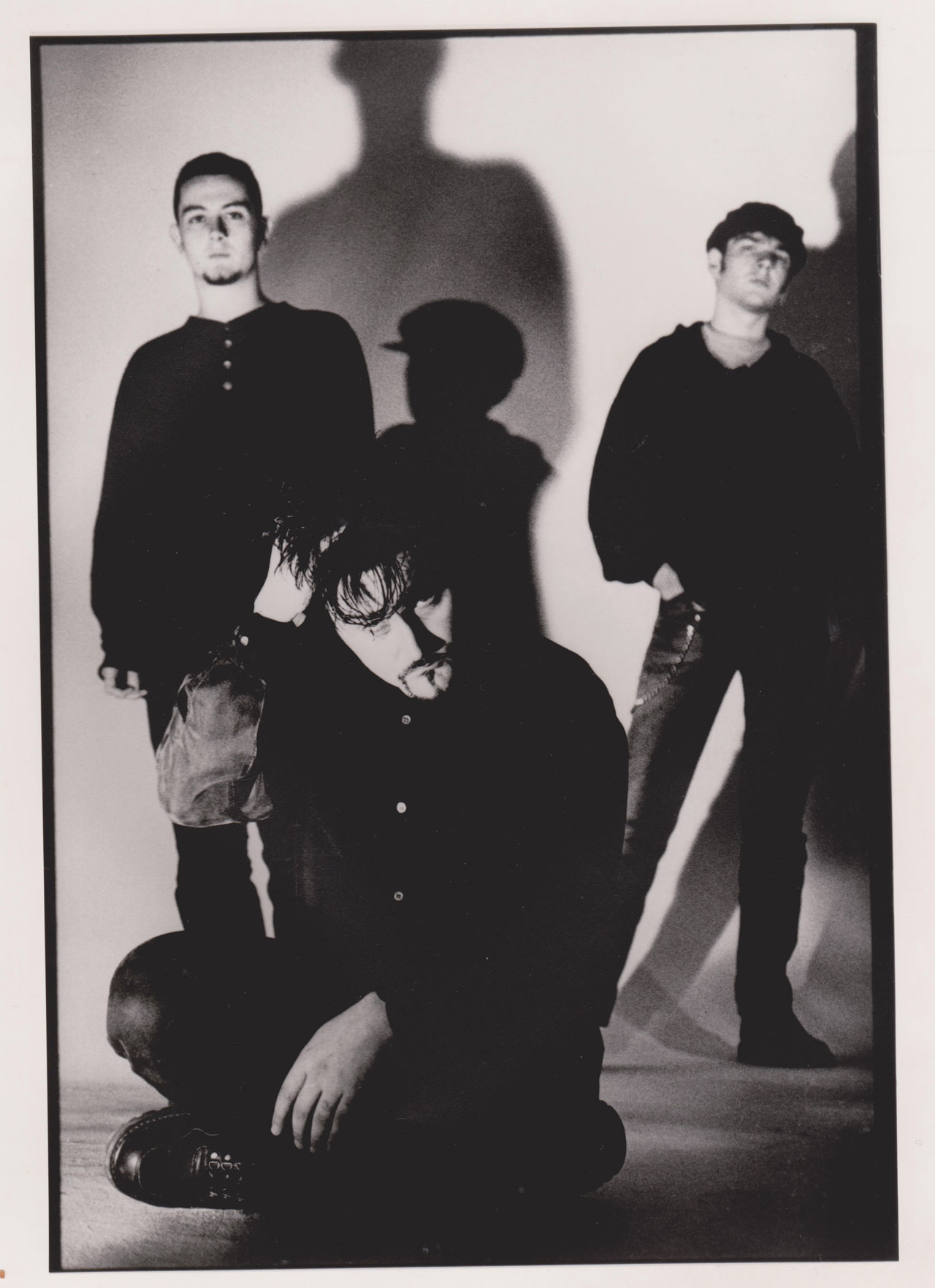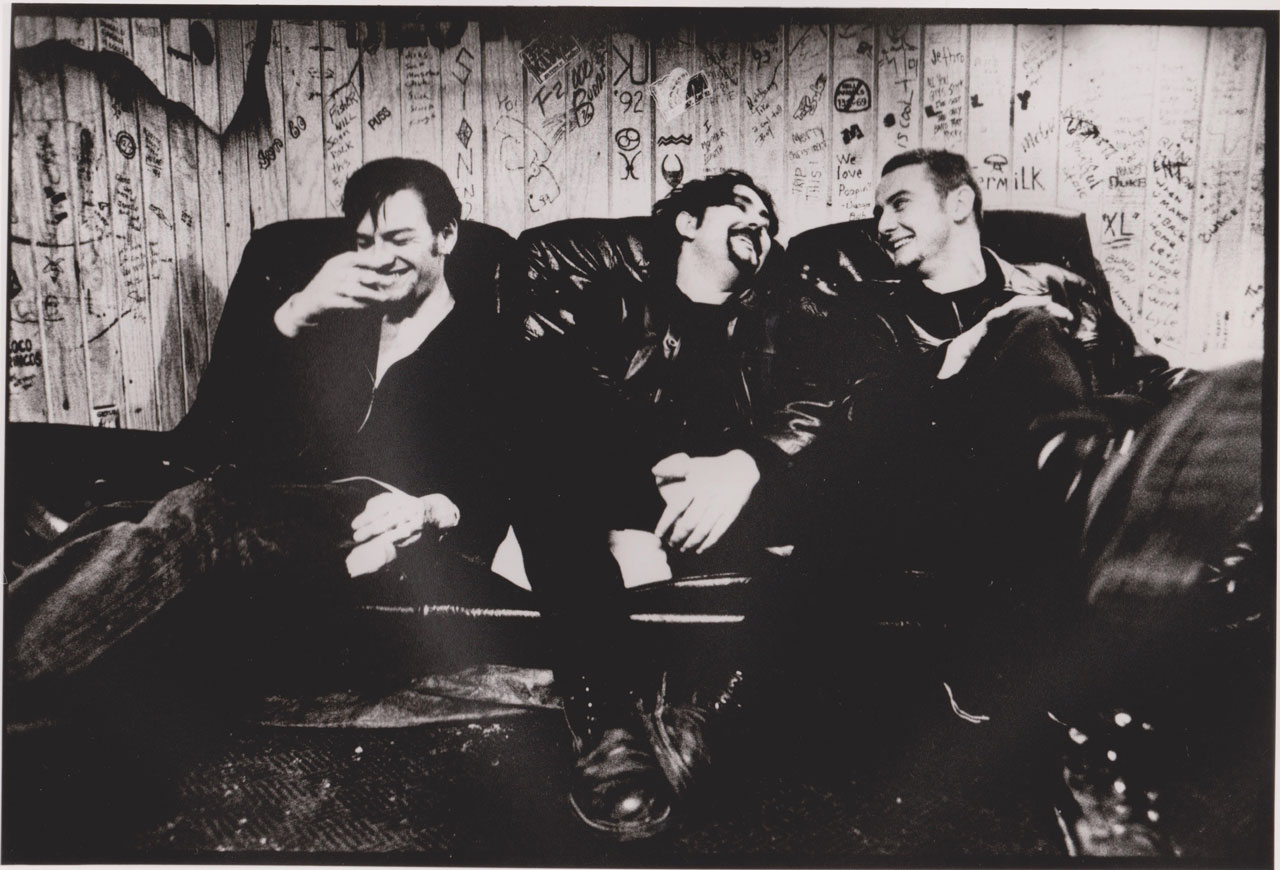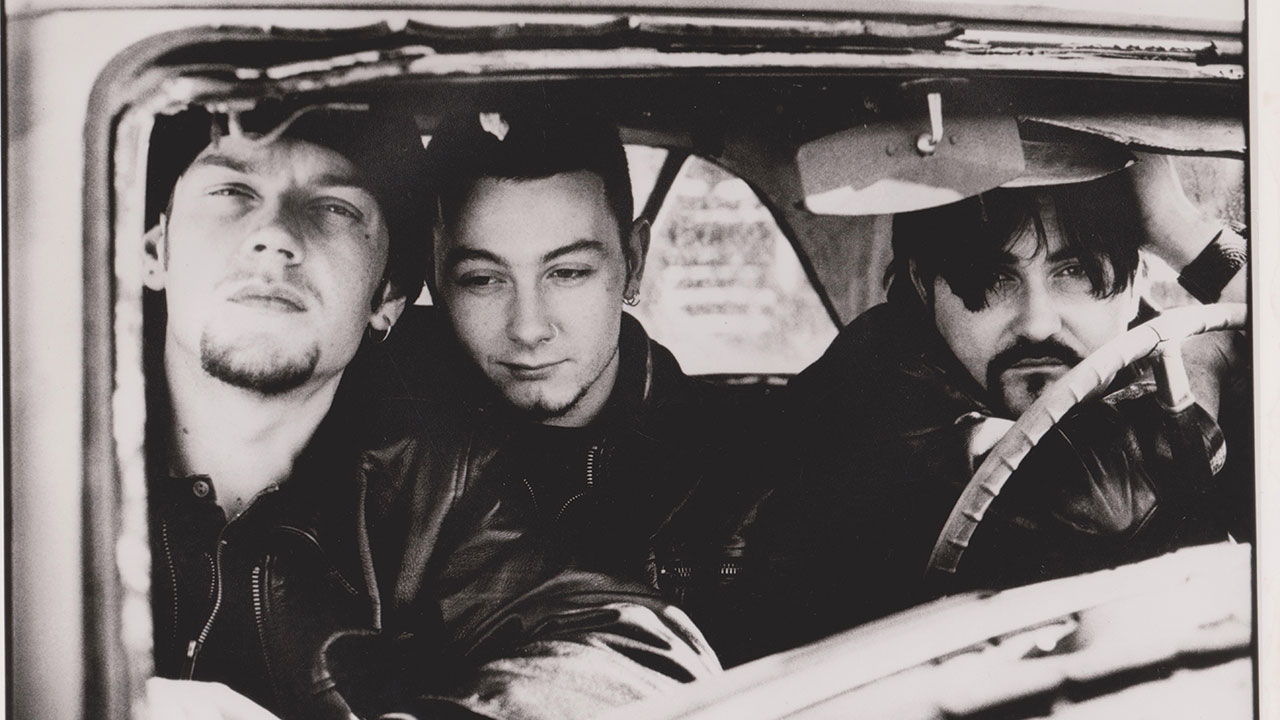It wasn’t until three songs into their set at the 1994 Monsters Of Rock festival that Therapy? frontman Andy Cairns realised his band weren’t going to get crucified after all.
The Northern Irish trio’s second full-length album, Troublegum, had been an out-of-the-box hit when it was released earlier in the year. This genius-level mash-up of alt-rock agitation and gold-plated pop nous had united the tribes in a way that no one – not even Nirvana – had done. Metalheads, punks, indie kids – everyone was swept up in its wake.
But Monsters Of Rock was something else. Download’s illustrious forerunner was the last great bastion of metal at a time when the genre was under siege on all sides. For three short-haired 20-somethings from Ulster, sandwiched between Zakk Wylde’s Pride & Glory and an in-the-ascendency Pantera, this was like stepping into a bear pit, where the bear has long hair, a Slayer T-shirt and some serious, lager-driven attitude.
“We’d been warned beforehand that this could go horrendously wrong,” says Andy today. “We were this band from the noise-rock underground, our bassist wore glasses, we had short hair at a time when short hair was viewed with suspicion in the world of metal. We had visions of getting bottled off. With bottles of piss at that.”
Therapy? didn’t get drenched in urine. Quite the opposite – they pulled off
a musical smash-and-grab that no one expected. It was all down to Troublegum.

Nothing in Therapy?’s background indicated that they would become one of the buzz bands of 1994. Formed five years earlier in provincial County Antrim by Andy, bassist Michael McKeegan and drummer Fyfe Ewing, their early releases had been full of abrasive noise-rock that owed a debt to US underground heroes The Jesus Lizard and Helmet. Even their name was awkward – that idiosyncratic question mark, added by Andy to fill space on the sleeve of their first single, added an element of WTF? to proceedings.
But the post-Nirvana gold-rush had prompted the major labels to snap up any band with chafing guitars and a head full of self-loathing, and Therapy? had both. They were scooped up by A&M, who released their first full-length album, Nurse, in 1992. The first single for the label was Teethgrinder, a chorus-free slab of distorted clatter whose title was inspired by the long-term effects of taking speed. Amazingly, it reached the UK Top 30.
“People thought Troublegum had come out of nowhere, but all we’d known was hard work,” says Andy. “We had done two world tours that year, so we’d put in the legwork.”
Flush with this unforeseen success, various on-trend names were thrown about to produce the follow-up to Nurse, including Nevermind producer Butch Vig. “We didn’t think we were ready for that,” says Andy. “We were three kids from Northern Ireland from this punk background. It didn’t feel right.”
Therapy? instead elected to go with Chris Sheldon, a young British producer who’d previously worked with indie-rock icons Pixies. Chris asked to hear the new material the band had written. One of the new tracks was Screamager, a blast of brittle pop-punk melody and energy with a side-order of grunge-friendly self-loathing thrown in.
“We were playing it and Chris went, ‘That’s fantastic, what is it?’” says Andy. “We just went, ‘Well, it’s a bit too poppy for us.’ But he said, ‘Well, let’s stick with it a while.’”
The producer’s instincts were on the money. Screamager was released as the lead track on the Shortsharpshock EP in March 1993. It was meant to be little more than a stepping stone, a tip of the hat to Ulster punk figureheads Stiff Little Fingers and The Undertones. “It was supposed to be a one-off,” says Andy. “After that we’d go back to making the kind of noise rock we were known for.”
But something strange happened. Music magazines across the board from Metal Hammer to NME showered Screamager with praise. Weirder still, it began to get honest-to-god airplay on radio. With the wind in its sails, the Shortsharpshock EP entered the UK Top 10. Suddenly, Therapy? were on their way.

With Troublegum still a year off, Therapy? were on the horns of an existential dilemma. They had a bunch of new songs that veered closer to Screamager than they did the twisted racket of old. Should they continue to mine this unexpected seam of chart-friendly alt-rock or did they revert to malcontented type? They called a band meeting to thrash it out.
“We sat down and said, ‘Look, this could go either way – we could get people on board and say all the things we always wanted to say, but it could go stupendously wrong and we’ll be in all sorts of trouble,’” says Andy.
They opted to take the plunge – not out of a desire to become famous, but because the new songs retained enough edge to deflect any accusations of selling out.
The trio worked fast. The title Troublegum came early, mirroring the humour and angst of the songs they were writing. Underneath their shiny surfaces, new tracks such as Nowhere, Die Laughing and Trigger Inside bristled with alienation, twisted religious imagery and mangled psycho-sexual tension.
“I grew up as someone who wasn’t exactly pin-up material, with weight and confidence issues, plus I had all this stuff I was carrying with me from Northern Ireland, the religious divide,” says Andy. “All that was in there.”
A string of singles and EPs built a head of steam. The kicker was Nowhere. Released in January 1994, this slice of buzzing pop-metal genius stands as one of the greatest singles of the era. Its repeated refrain – ‘Going nowhere’ – struck a universal chord and Nowhere became the soundtrack to metal and indie club nights up and down the country.
Troublegum came out a few weeks later. It busted into the Top 5, its themes connecting with people irrespective of the subculture they belonged to. “It didn’t matter whether they were metallers, goths, punks or people in baseball caps and Reeboks,” says Andy. “When you’re young, you’re this mess of emotion. And
it helped that they were great tunes.”
Therapy? suddenly found themselves in demand. Dave Grohl and Blondie’s Debbie Harry turned up at their gigs, they jammed onstage with Max Cavalera and on TV with Sting, they opened for Aerosmith and recorded a cover of Iron Man with Ozzy on guest vocals. The epic weirdness of it all was hammered home minutes after they left the stage following that victorious Monsters Of Rock set.
“I’d just come offstage and someone went, ‘I hear you like the Marquis de Sade,’” says Andy. “I turned my head and it was Bruce Dickinson. I’d mentioned in a magazine that he was one of my favourite authors, and we sat and talked about him for 45 minutes. We didn’t mention music once. Just the Marquis de Sade.”

Therapy? ended their brilliant, breathless year on a high. Troublegum cleaned up in music magazines’ end-of-year polls – Hammer voted it the second-best album of ’94, beaten only by Soundgarden’s Superunknown. Their label, A&M, wanted more where that came from, squeezing as much juice from the lemon before the arrival of Oasis and Britpop.
“Their words were: ‘Strike while the iron’s hot,’” says Andy. “The last show was on something like December 23, and the day after Boxing Day we were in a studio in Lincolnshire with no songs, trying to work on the follow-up. We were exhausted.”
Neither Britpop nor a hellish workload could crush Therapy’s spirit. Twenty-five years on, Andy and Michael McKeegan continue to fly the flag (Fyfe Ewing departed in 1995). Such is Troublegum’s greatness that its imprint has marked the albums that followed to one degree or another. Where some bands tire of the records that made them famous, Andy Cairns has no such issues.
“I think it remains quite unsung in what it did for rock music and how it crossed over into other tribes,” says Andy. “Killing off indulgent blues-based solos, having intelligent lyrics that dealt with issues of self-help and self-effacement – there weren’t a lot of bands doing that in the metal sphere at the time. And it’s got great songs on it!”

